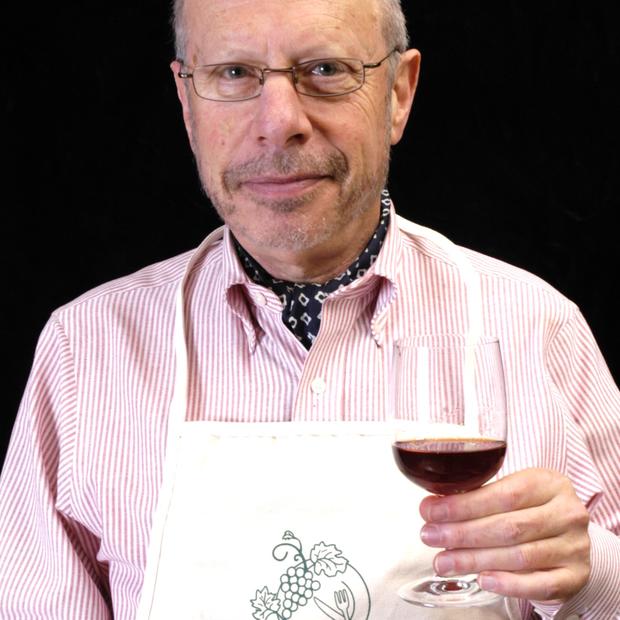Was there sex? Sure! No porn-star faking it, either. Real girl-on-girl sex and lots of it. But to focus on the breasts and butts and fingers (as many reviews and censors have) misses the broader point. As much of "La Vie d'Adèle" is devoted to the pleasures of the table as the bedroom in this coming-of-age story.
And even more time is spent in the classroom: You can sense the rigor (and the boredom) of Adele's high school literature class as the teacher puts the students through close textual analysis of an obscure 18th century novel, “La Vie de Marianne,” by Pierre de Marivaux. It sounded like a graduate school seminar on modern literature, and reminded me yet again of the French admiration for intellectual achievement. So yes, it's the story of Adele, but it's also an in-your-face assertion of the cultural superiority of French 19-year-olds.
Seattle audiences were the first to see this film after it won the Palme d'Or at Cannes. Next Thursday, capping out SIFF's eight-day Italian mini-festival, they'll also have a chance to see last year's winner (and this year's Italian Oscar nominee), “La Grande Bellezza”. Bellezza's writer and director, Paolo Sorrentino, is scheduled to appear. His previous film, “This Must Be the Place,” filmed in English, starred Sean Penn.
Thursday's opening film, “L'Arbitro,” told the story of a disgraced soccer referee who ends up officiating at a grudge match in rural Sardenia. But its appeal was about so much more than its narrative: It was a chance to see the fabric of daily life in remote and rocky villages. Short of binge-viewing every season of “Breaking Bad,” there's no way you're going to get this depth of insight into a foreign culture outside a SIFF mini-festival.
Still ahead this year: A thriller called “The Best Offer,” featuring Geoffrey Rush and Donald Sutherland, screens Saturday night. Also on the program: a restored print of Lucino Visconti's spectacular 1965 film “Sandra,” starring the sultry Claudia Cardinale (Saturday at 1:30 p.m.); “Salvo,” an unblinking look at the Sicilian mafia (Friday at 6:30) and “Slow Food Story,” about Carlo Petrini's unlikely trajectory from back-country journalist to leader of a global food movement (Sunday at 4).
The Italian mini-festival is now in its fifth season. Donna James, former director of Seattle's Office of Film, initiated the concept with the assistance of a $5,000 grant from Pagliacci Pizza. Didn't hurt that her husband, former KING TV anchor and occasional Crosscut contributor Mike James, was president of the Seattle-Perugia Sister City Association at the time.
I've given up going to the movies regularly; too many mindless shoot-em-ups. And that's why SIFF is so important: it provides thoughtful perspectives on life from a non-American perspective. Not that SIFF is immune to commercial concerns; its biggest theater, the Uptown on Lower Queen Anne, needs a devoted coterie of regulars who will show up for the Hollywood blockbusters, from “Django Unchained” to “12 Years a Slave.”
But SIFF has always been more than an art house.
“Our mission here is three-fold,” explains Mary Bacarella, who took over as SIFF's executive director this year. “First, movies year-round. New releases, mainstream films, overlooked films. Second, the mini-festivals. Regional, national, special-interest, documentaries. And then there's our original mission: The international film festival itself, one of the oldest in the country, founded by Dan Ireland and Darryl Macdonald back in 1976, that presents 400 films over a three-week period every spring.”
And that's before we get to the outreach part of SIFF's activities. The “FutureWave” educational program serves over 10,000 young people a year with film appreciation as well as technical, hands-on film-making programs. “This is one more way can we 'grow our own' and ensure that Seattle continues to develop educated audiences,” says Carl Spence, SIFF Artistic Director. "I've never been more proud to be part of a city that radiates such enthusiasm for film."
If you go: SIFF presents Cinema Italian Style through Thursday, November 21st. Schedule and details for all 17 films are online at http://www.siff.net/italian. Tickets to individual screenings are $11 for the general public ($6 for members). A pass for the entire festival is $100 ($75 for members).



